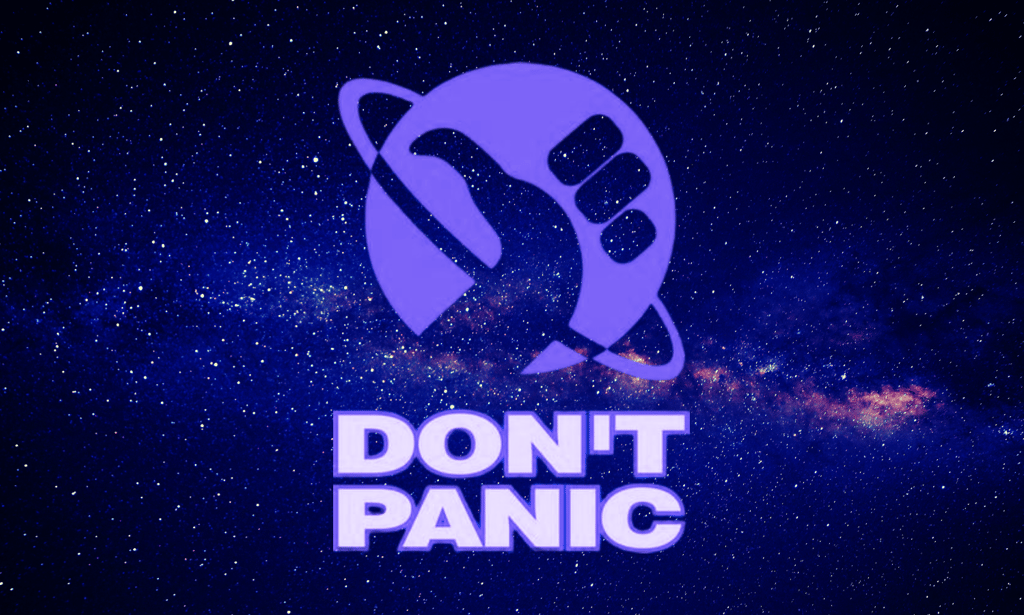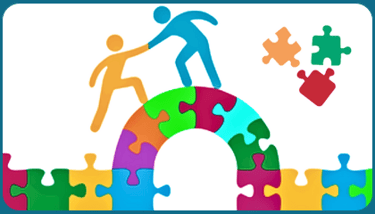Don't Panic! Understanding the Importance of Information in Today’s World
The answer to life the universe and everything is "42", the issue is that we do not understand the question...
SOCIAL CONTRACTSROADTRIP
Mark Boatwright-Frost
11/5/20244 min read


The Hitchhiker's Guide to Understanding the Void
In Douglas Adams’ iconic science fiction work, 'The Hitchhiker's Guide to the Galaxy,' the destruction of Earth is disclosed in a pedestrian and unremarkable office setting, highlighting the absurdity of how critical information can be relegated to obscure corners of existence. This theme resonates deeply with the contemporary landscape, where vital information often competes for attention against a backdrop of constant noise, particularly in the realm of social media and digital communication.
The central message of Adams' narrative serves as a cautionary tale; it emphasizes the dire repercussions that arise when essential warnings are overlooked or minimized. Just as the Earth's inhabitants ignored the impending doom due to the mundane delivery of the news, individuals today might disregard significant information amid the vast array of distractions that surround them. The sheer volume of data available today can obscure urgent communications, leading to a populace that is either overwhelmed or apathetic toward salient issues.
Furthermore, this phenomenon underscores the need for vigilance in how one consumes and processes information. Much like the inhabitants of Earth, who were oblivious to the looming crisis, modern society must remain aware of the critical nature of certain messages, even when they are delivered in seemingly inconsequential ways. Ensuring that one stays informed and maintains a willingness to engage with pertinent information is more crucial than ever in an era where misinformation can proliferate rapidly.
Thus, understanding the vital role of information in our lives is imperative. The absurdity of dismissing critical warnings cannot be overstated; such negligence can lead to devastating consequences. In today's interconnected world, it is essential to discern what information is genuinely significant amid the chaos, as the lessons from Adams' work continue to resonate with contemporary audiences.
The Information Overload Dilemma
In the digital age, the phenomenon of information overload has become increasingly prevalent. With an unprecedented amount of data available at our fingertips, individuals often find themselves inundated with both relevant and irrelevant information. This influx can create confusion instead of clarity, making it difficult for people to discern what is truly valuable. One primary contributor to this issue is the rise of social media platforms, which serve as major channels for communication and information dissemination. While these platforms can be effective for disseminating important announcements, they also facilitate the rapid spread of misinformation and sensationalized content.
The ability of social media to amplify messages means that critical information can easily become lost in the noise. Important updates regarding public health, safety, or political events can be overshadowed by trivial posts or misleading narratives. As a result, individuals may disengage from critical information, believing that much of what they encounter lacks relevance. This disengagement can have serious repercussions, as people may miss crucial updates that affect their lives or communities.
Another challenge presented by the deluge of information lies in the difficulty of distinguishing credible sources from unreliable ones. In a climate of distrust, individuals must navigate their way through a sea of contrasting viewpoints, often leading to confusion and frustration. The prevalence of fake news and bias-laden content further complicates this landscape, amplifying the need for consumers of information to approach content with a critical eye. Developing information literacy skills and fostering an awareness of sources are essential in combating misinformation. Therefore, it is imperative for individuals to remain vigilant and proactive in their quest for truth amidst the overwhelming onslaught of data available today.
Crisis of Trust: Misinformation and Its Impact
In recent years, the landscape of information dissemination has undergone significant changes, leading to what many are calling a crisis of trust, particularly concerning mainstream media and information sources. According to a 2021 Pew Research Center study, only 36% of adults in the United States have a great deal of trust in traditional news outlets. This decline in public confidence can be attributed to several factors, including the proliferation of misinformation and the echo chamber effect exacerbated by social media platforms.
Misinformation, defined as false or misleading information spread regardless of intent, has seen a meteoric rise, especially during high-stakes events such as presidential elections. The 2020 election cycle highlighted how misinformation affects public perceptions and democratic processes. The consequences are profound; misinformation can skew public opinion, influence voter behavior, and ultimately, undermine the legitimacy of electoral outcomes. A robust study by the MIT Media Lab found that false news stories are 70% more likely to be retweeted than their factual counterparts, illustrating the sheer potential of misinformation to dominate the narrative.
The implications of dwindling trust in information are not confined to political implications alone. The societal impacts manifest in weakened public discourse and heightened polarization. When individuals become doubtful of the information provided by credible sources, they may rely on partisan or biased outlets, further entrenching divisions and complicating consensus-building. Therefore, it becomes increasingly essential for citizens to cultivate discernment in their consumption of information. By equipping themselves with critical thinking skills, individuals can navigate the complex landscape of information more adeptly, questioning sources and cross-referencing facts before drawing conclusions.
Navigating the Path Back to a Free Press
In the current landscape of information overload, navigating the path to a free press is more critical than ever. Individuals seeking reliable news must develop skills to discern trustworthy sources from those that propagate misinformation. One effective strategy is to prioritize established and reputable news organizations that uphold journalistic integrity. Such outlets are often dedicated to fact-based reporting and thorough investigations, which are essential in fostering a well-informed public.
In addition, promoting independent journalism plays a significant role in enhancing the information ecosystem. Organizations that operate independently of corporate influence are better positioned to provide balanced reporting and engage with communities. Supporting these entities—whether through subscriptions, donations, or sharing their work—can help ensure diverse perspectives and context in news coverage. This is essential for a healthy discourse that can illuminate issues beyond simplistic narratives.
Furthermore, media literacy is a crucial component in empowering citizens. By teaching critical thinking skills, individuals can assess the credibility of various information sources more effectively. Engaging in discussions about news and information can also enhance understanding and bring awareness to biases present in media. Workshops or online resources focusing on media literacy can equip individuals with the necessary tools to navigate the complexities of modern news consumption.
Finally, a full commitment to upholding the principles of a free press involves advocating for transparency and accountability within the media. Encouraging dialogue around media practices and policies can foster a more informed and responsible citizenry. Through collective efforts in supporting independent journalism and enhancing media literacy, the path back to a free press can be navigated with greater ease, ultimately benefiting society as a whole.
PRO TIP: Facebook will not tell you which is which, nor will any other social media platform...
Thoughts on a human future... ~Mark Boatwright-Frost
The Resilient Community Movement
In today's ever-changing world, the importance of fostering resilience within neighborhoods and communities cannot be overstated. By facilitating connections among residents, we empower individuals to share their stories and experiences, creating a strong support network. This collaborative spirit not only enhances the well-being of community members but also amplifies their voices, ensuring that their unique human needs are recognized and addressed.
Contact and Connect
info@reseco.org
© 2024. All rights reserved.
